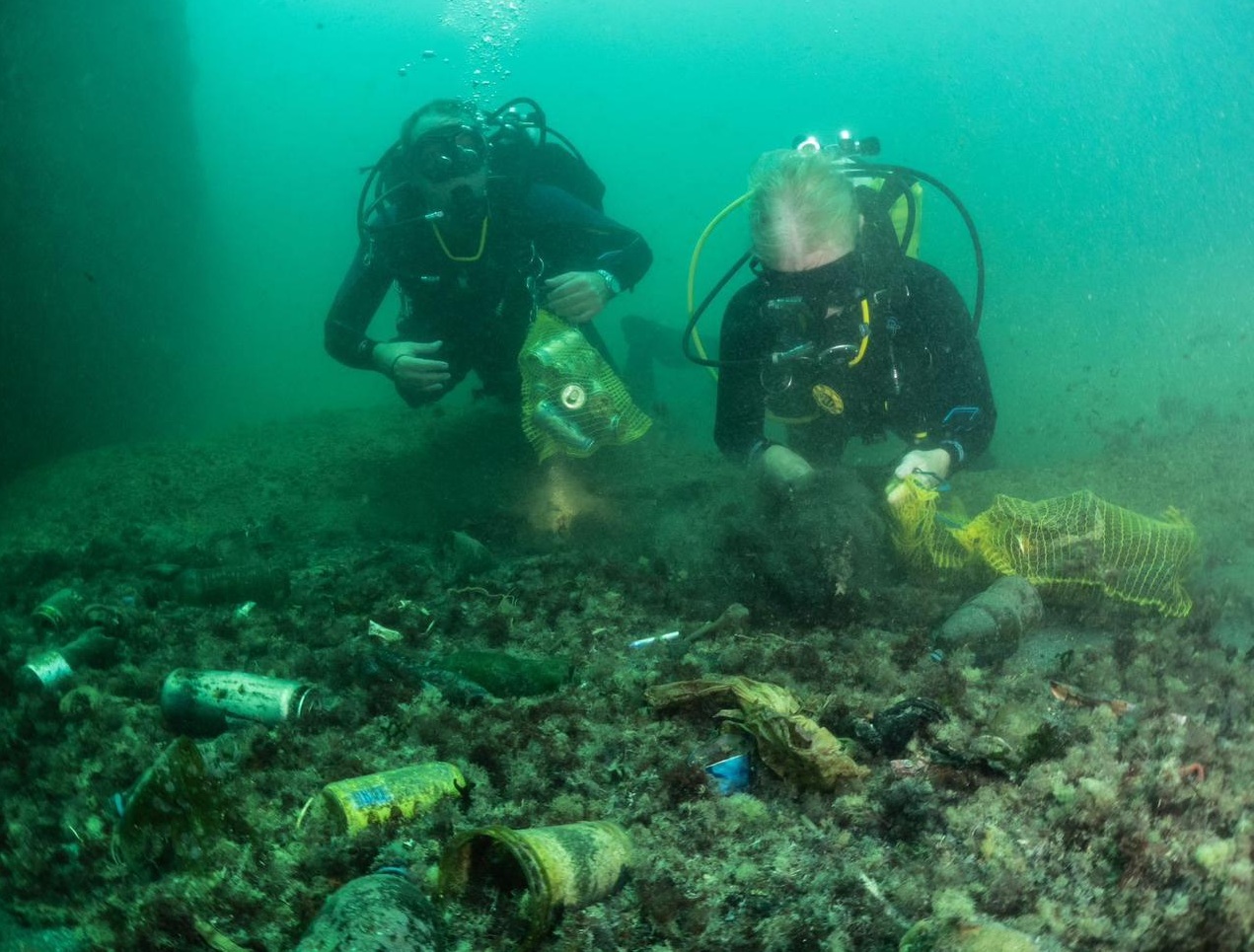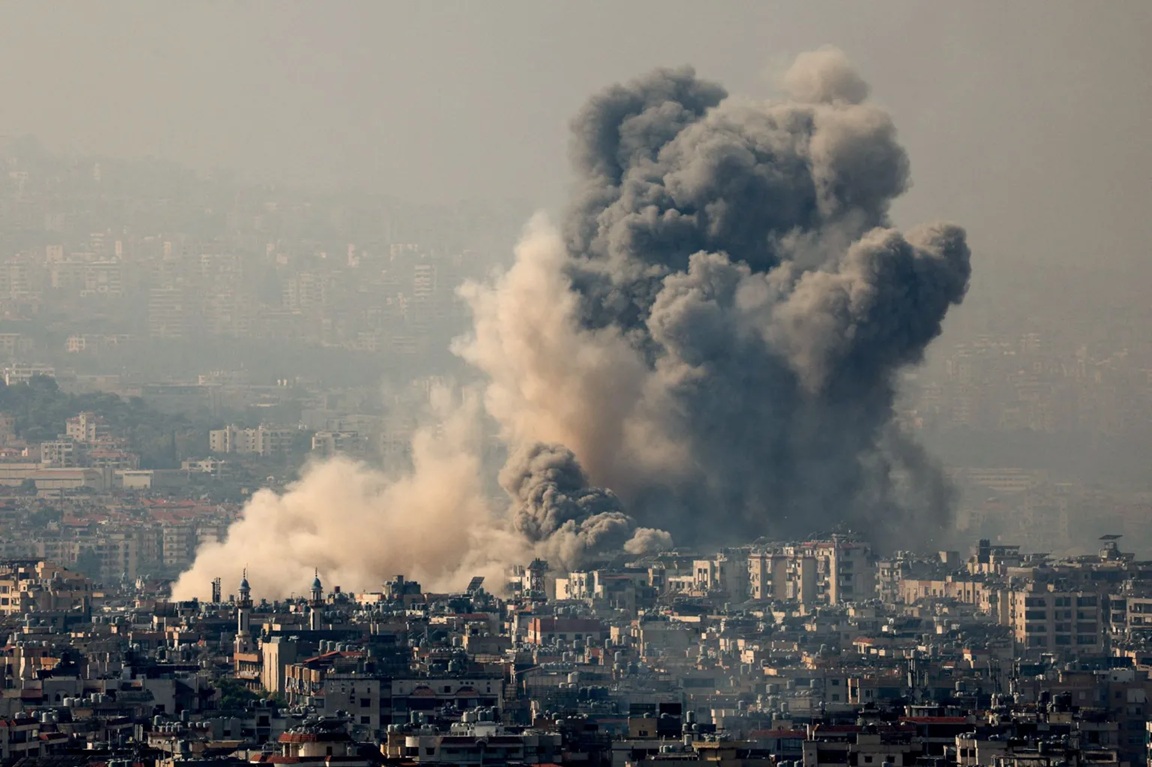
Since childhood, I’ve been mesmerised by the mysteries of the underwater world. I could sit for hours watching Discovery Channel documentaries, fascinated by the vibrant, silent universe that coexisted beneath the surface. That sense of wonder never left me. So, when a friend and I recently found ourselves discussing scuba diving, an idea sparked: why not turn this fascination into a national call to action? That is precisely what we did with SWIM Lebanon (Sustainable Waste Intercity Marathon).
By Lisa Sofian
SWIM has been leading beach cleanups in Lebanon for five years now. But one painful truth always emerged—much of the plastic waste we were collecting came not from careless sunbathers but from the sea itself. As we continue to recklessly dump garbage in the mountains, valleys, and streets, the rain inevitably carries it into the sea.
Overflowing landfills, trash thrown into rivers and along shorelines, and a complete lack of source recycling are choking our coastlines. The thought struck hard: what if we dove beneath the surface to tackle pollution where it lives?
That’s how the idea for our World Scuba Diving Day campaign was born: a full-scale underwater cleanup stretching from Tyre to Tripoli, echoing our first campaign that swept Lebanon from Naqoura to Akkar.
Fate stepped in during an interview on Virgin Radio Stars, where I met Maya Nassar, a passionate advocate for healthy living and environmental awareness. She introduced me to Najy Chrabieh, GM of Virgin Radio Lebanon, a devoted diver and former National Geographic photographer. We instantly connected over our love for the sea and our mutual concern for Lebanon’s marine ecosystems.
The next day, I began contacting diving centers across the Lebanese coast. To my amazement, one by one, they said yes—without hesitation, without red tape, and with pure, passionate support. With 27 diving centers on board—including the Lebanese Army and Civil Defense—we brought together over 300 divers and 600 beach volunteers in Tripoli, Amchit, Byblos, and Beirut.
Despite the scorching August sun and growing regional tensions, people came. They dove, they cleaned, and—most importantly—they cared. Even The Liberum’s editor-in-chief attended the clean-up with his family.
The energy was electric. It was as if Lebanon, even in its most fragile state, remembered its soul—the sea—the same sea that had carried generations, told countless stories, and now desperately needed our help.
Operation Come Dive in Lebanon Echoes of the Sea
We documented everything—not for publicity but to awaken a deeper awareness. Our short documentary aims to educate youth and adults about marine conservation, ecosystem preservation, and the urgent fight against plastic pollution and ghost nets.
Because the truth is simple: No water, no life. No blue, no green. — Sylvia Earle
This documentary isn’t just about one day of diving—it’s a love letter to the ocean, a call to arms, and a tribute to every volunteer who said yes for the love of the sea. It’s about people like Michel Zoghzoghi, who travels to remote places and waits patiently to document wildlife, reminding us that every species is part of our shared home.
It’s about scientists like Manal Nader, who pursued marine biology and aquaculture inspired by his grandfather, a fisherman who knew the sea like a friend. It’s about Nabil Aouad, who spent his youth in the Mediterranean and returned to the sea even after a lung cancer diagnosis as a place of healing and purpose. And it’s about Marc Hado—the son of the sea—who free dives at every dawn with nothing but his breath, who, with his silent descents and rises, protects the ocean not just with words, but with presence, reverence, and an unwavering love for the waters he calls home.
We want the new generation to learn more about the sea's importance to the continuation of life on our planet. This is why our documentary goes beyond cleanup footage. It captures the heartbeat of a nation that still dares to care through the stories of people who turned their love for the sea into a mission.
It’s also for the children who came to the beach that day and asked why there was so much plastic in the water. For the parents who promised to start sorting their waste. For the teachers who decided to incorporate marine conservation into their curriculum. It’s for everyone who still believes that even the smallest act—picking up a bottle cap or refusing a plastic straw—can ripple outward and make a difference.
It’s about everyone who dreams up an idea and makes it happen. It’s a call to roll up your sleeves and go bigger, higher, and better.
Through our work at SWIM, we’re not just cleaning beaches but cultivating a culture—a culture of respect for nature, collective action, and civic duty. Our mission is to normalise environmental stewardship, make it part of everyday life, and remind everyone that the sea doesn’t belong to anyone—it belongs to all of us.
Lebanon may be going through tough times, but the sea united us that day—not through politics or promises, but through purpose. We dove into action, and what we surfaced with wasn’t just trash—it was hope.
And this is just the beginning.
DISCLAIMER
This article is dedicated to the community of SWIM swimmers, divers, supporters, and volunteers who never shy away from the responsibilities of making Lebanon a cleaner place.
Special thanks go out to: DIMA Healthcare - Michel Zoghzoghi, TAQA Snacks Soumaya Merhi, Power Marine Lb - Marwan El Khoury, WATA, Cider, Balkis Juice, Platform Studios, Aquafina Lebanon, 3M Plast, Abi Ramia brothers, and Sanita.







Dear lovers of Lebanon and the sea. What a tremoundous work you did for Lebanon and Mother Earth.
When we visited Byblos, January 2018, for a Conference, one of the cities we loved very much, was Byblos. But it was a shock to sea the sea full of waste plastic. Best wishes, Hilda